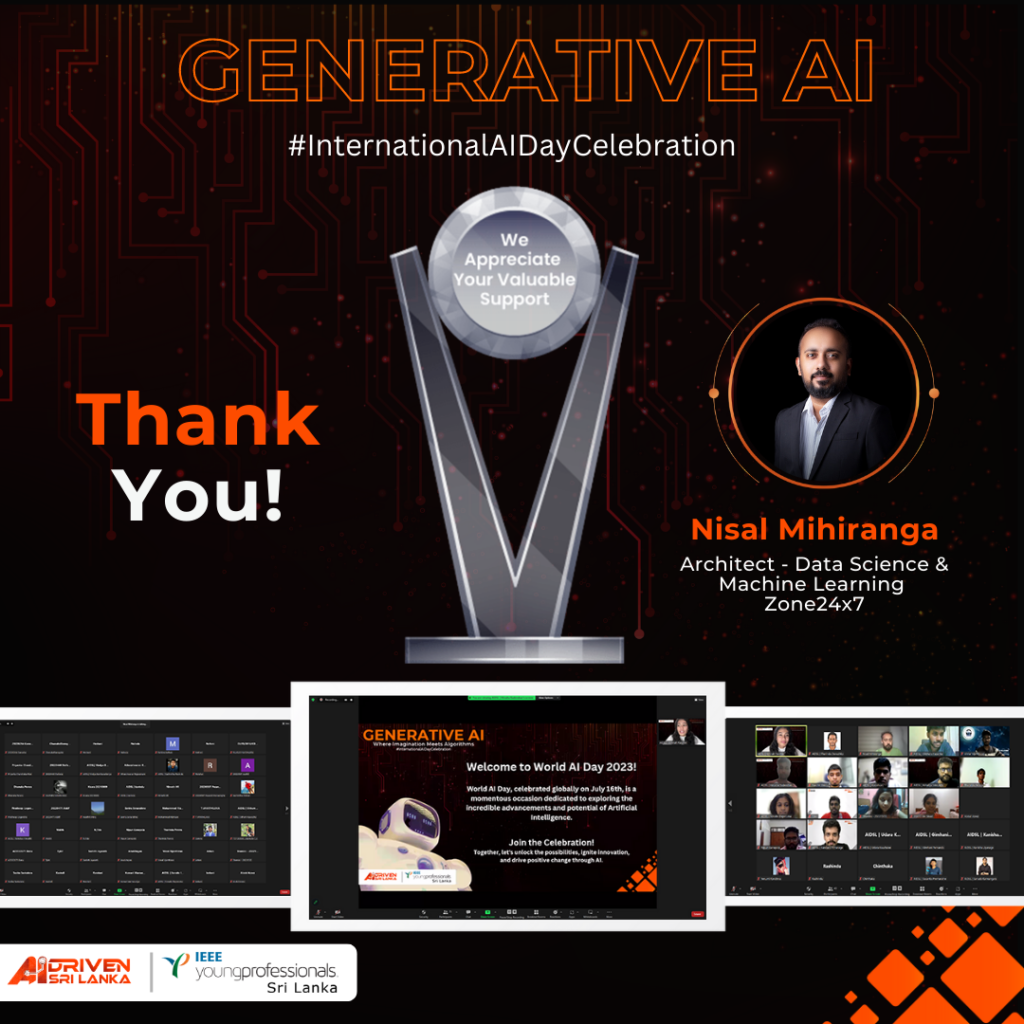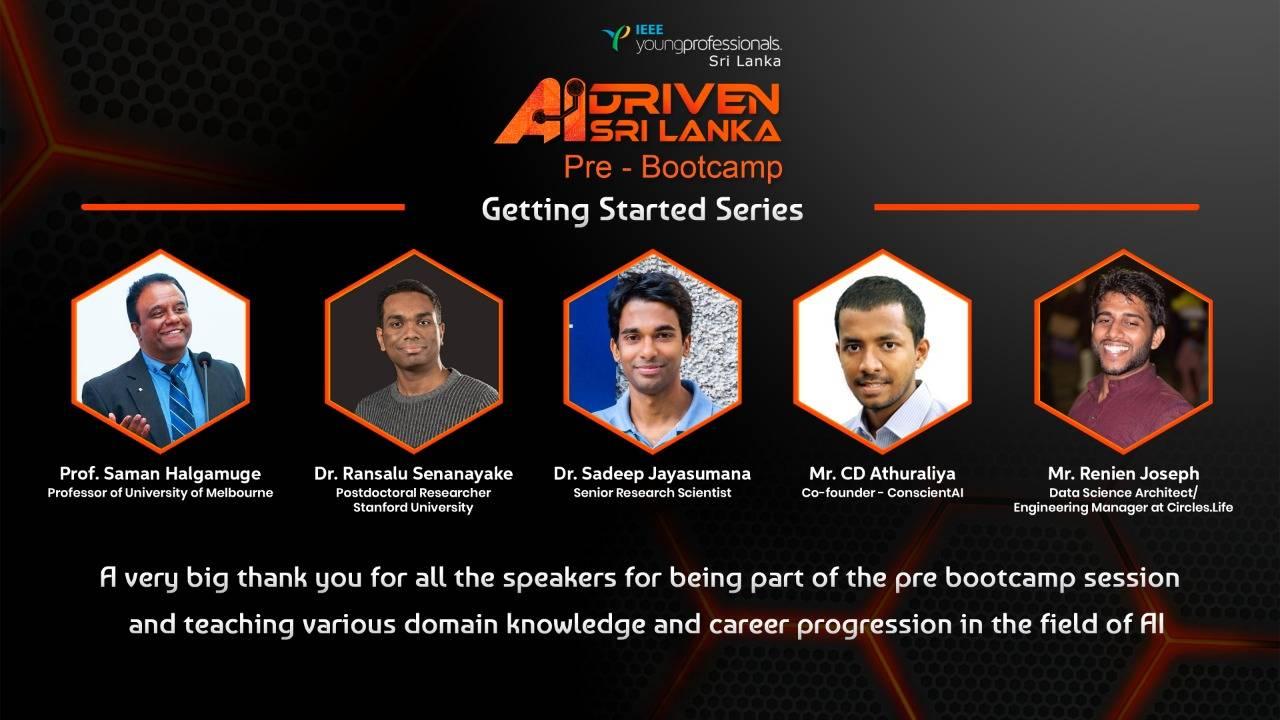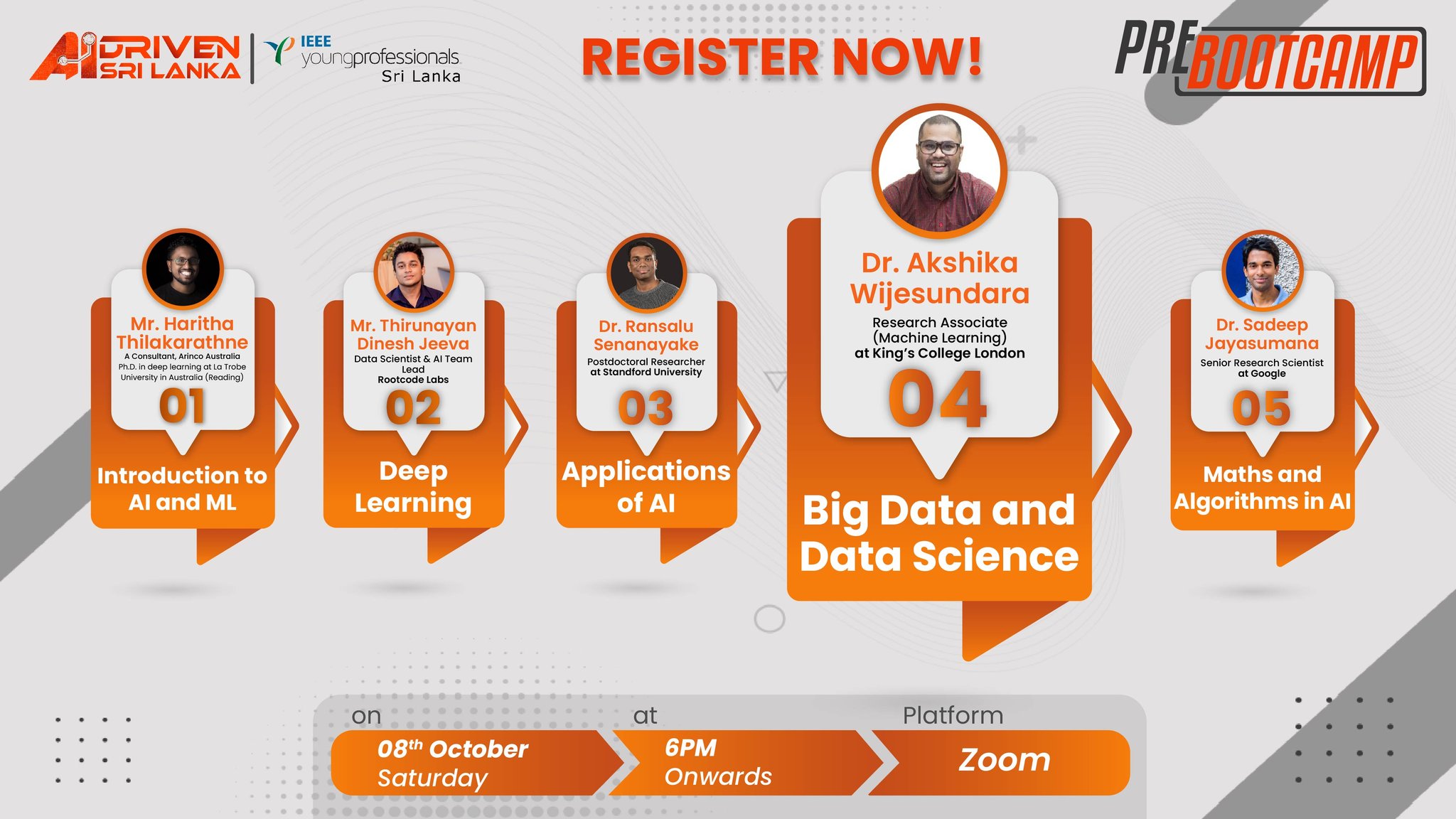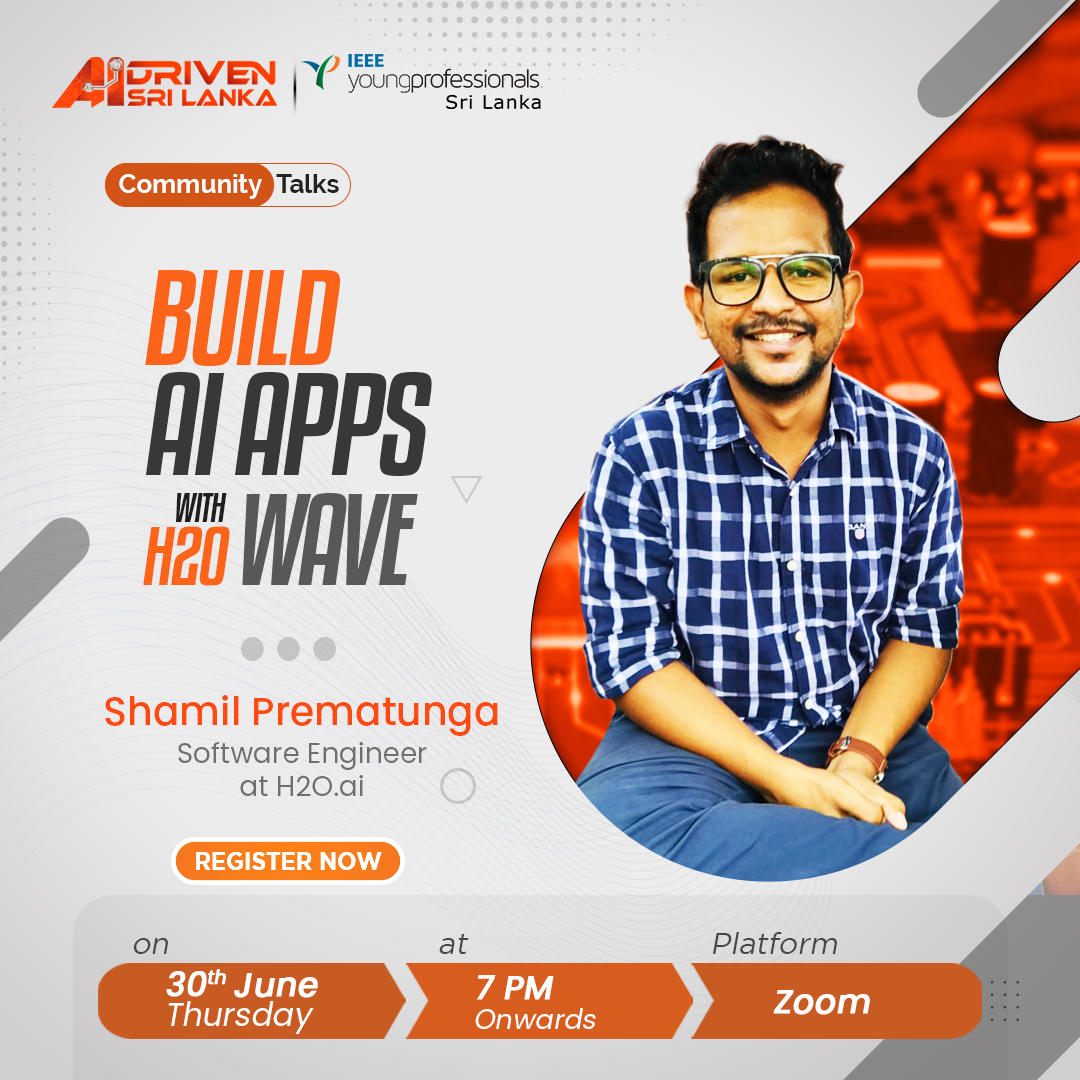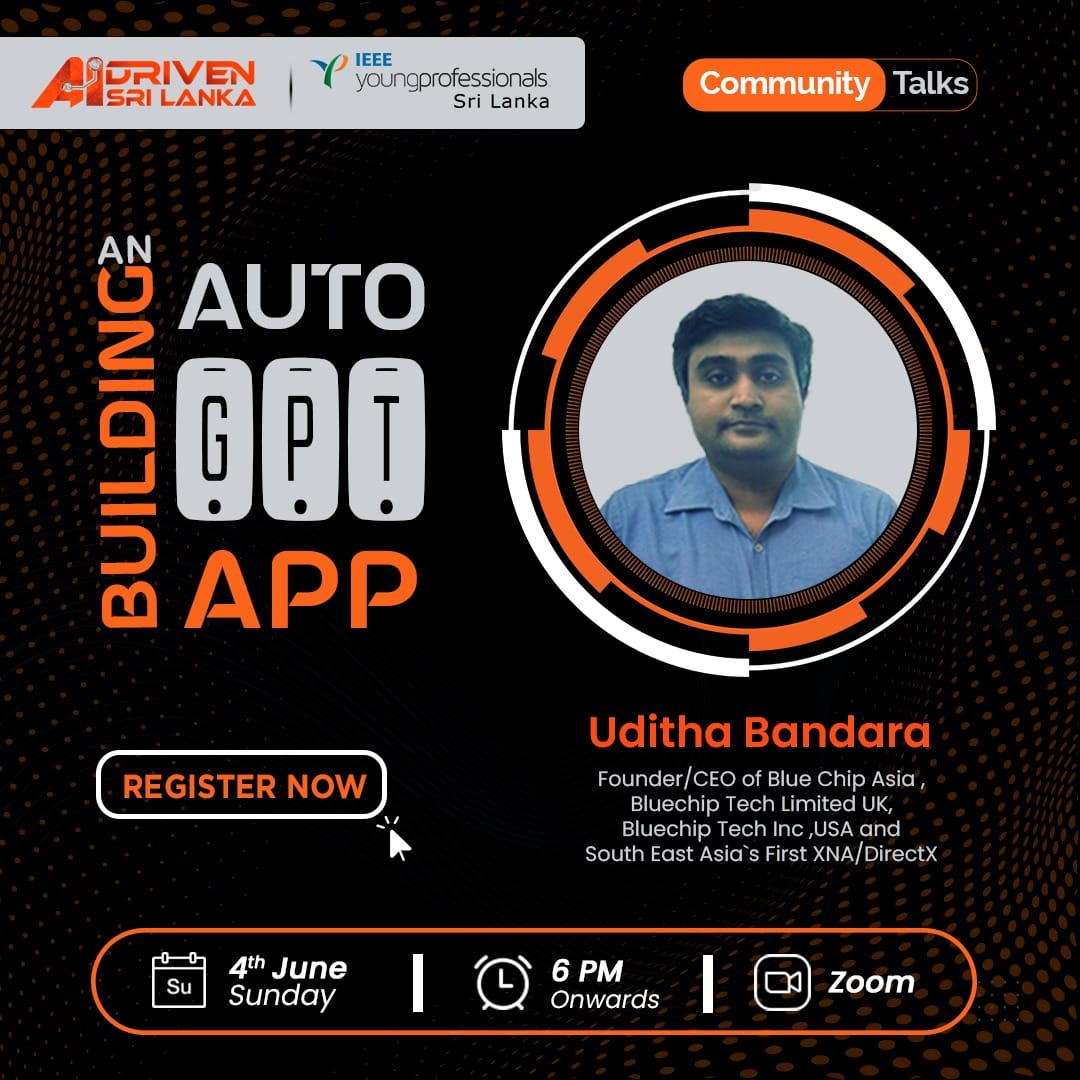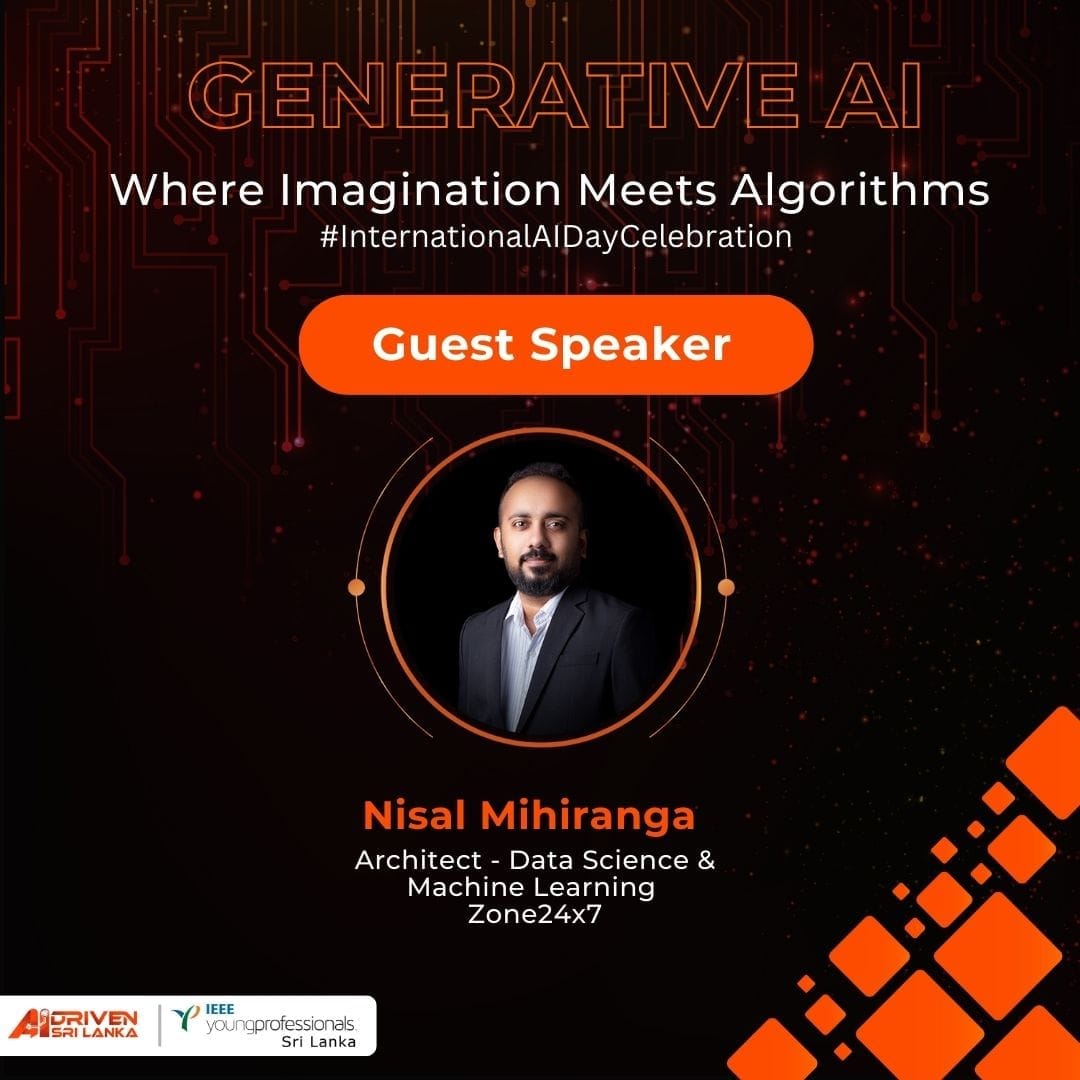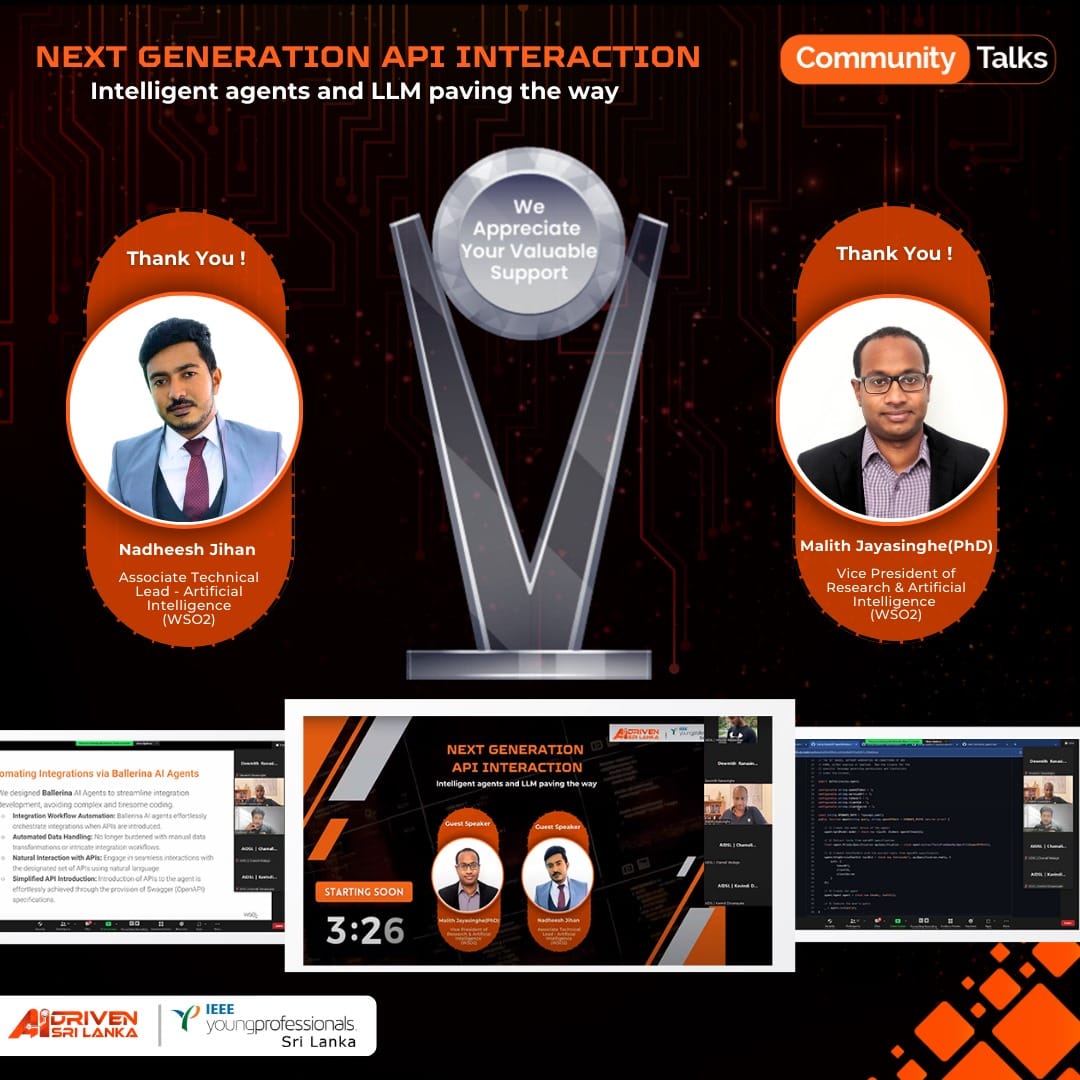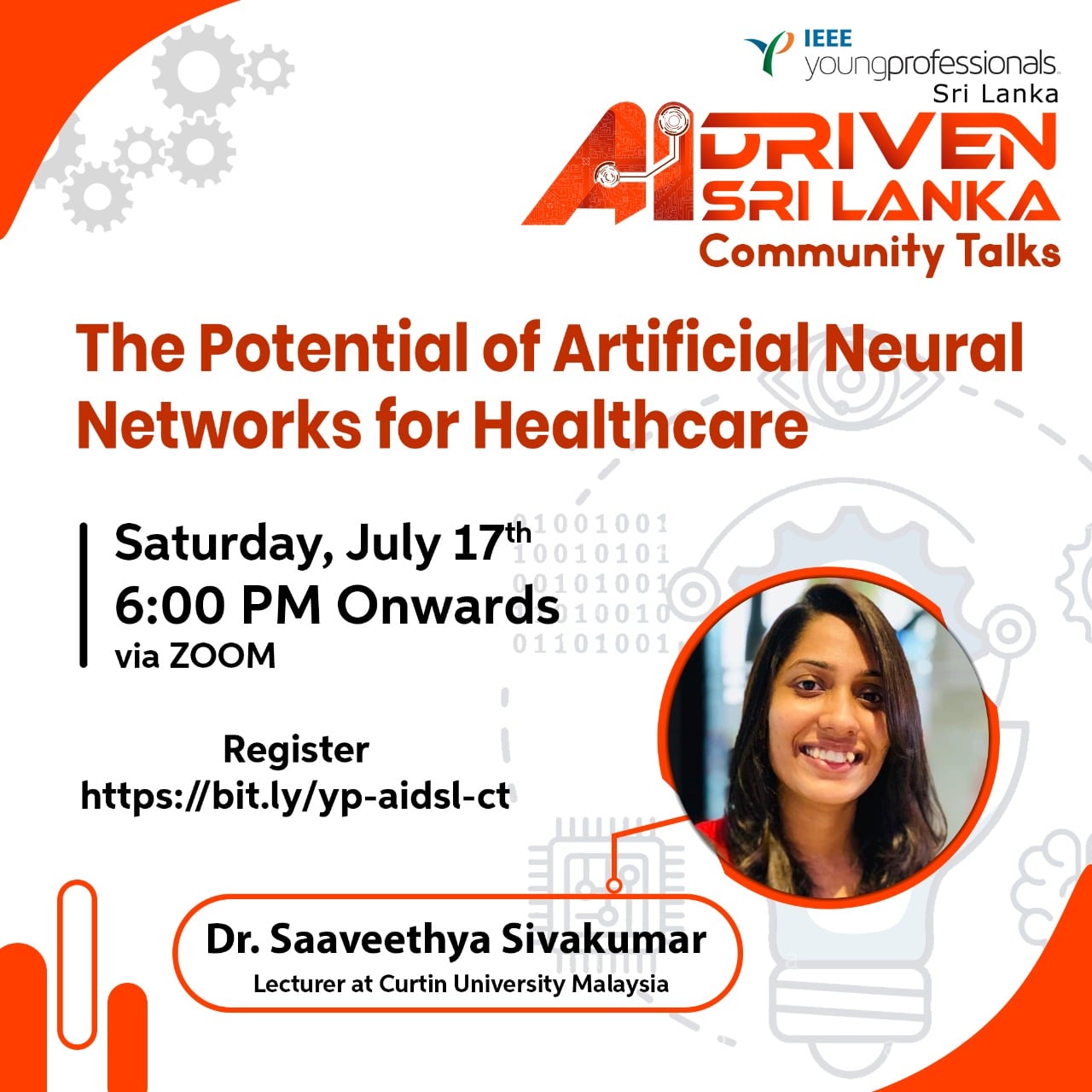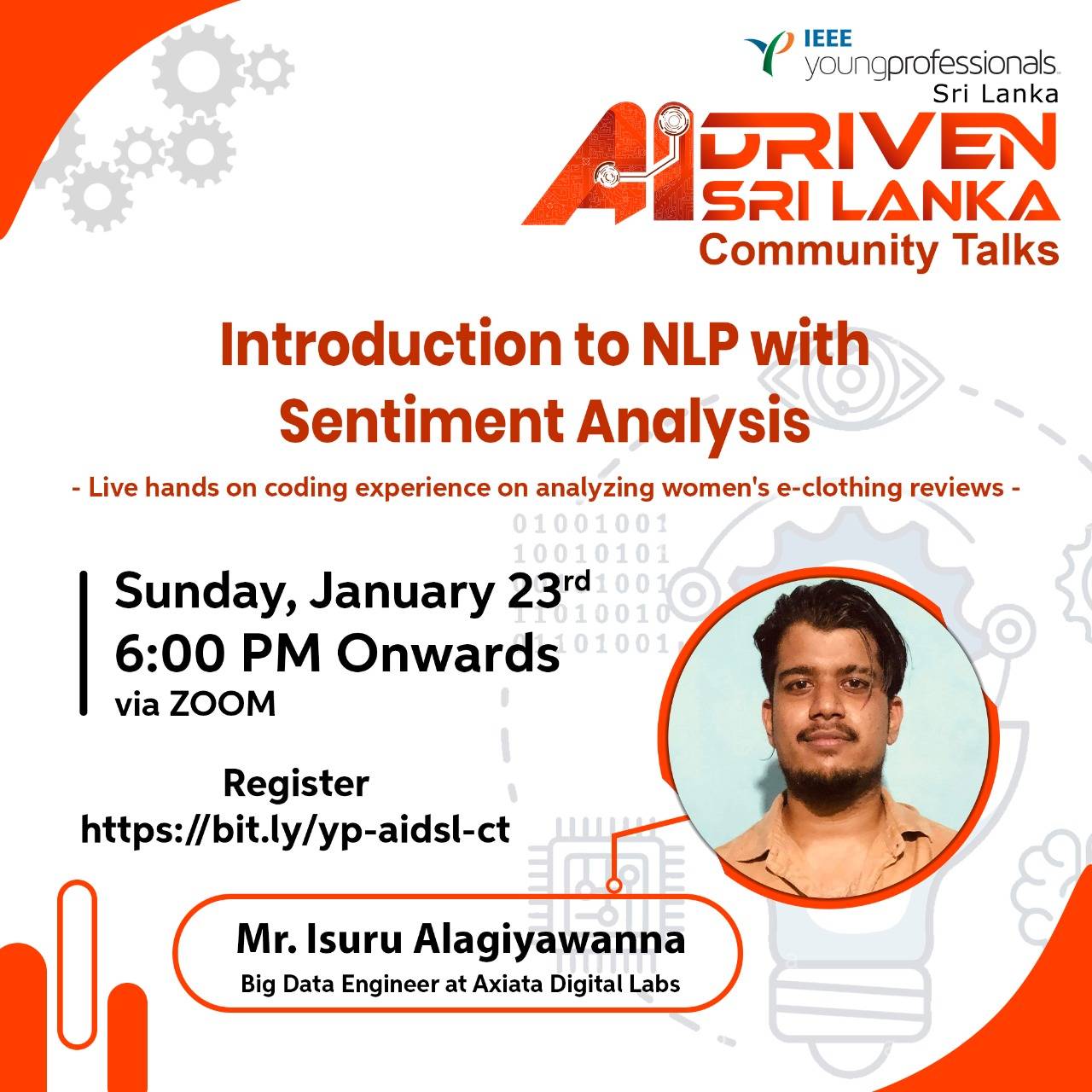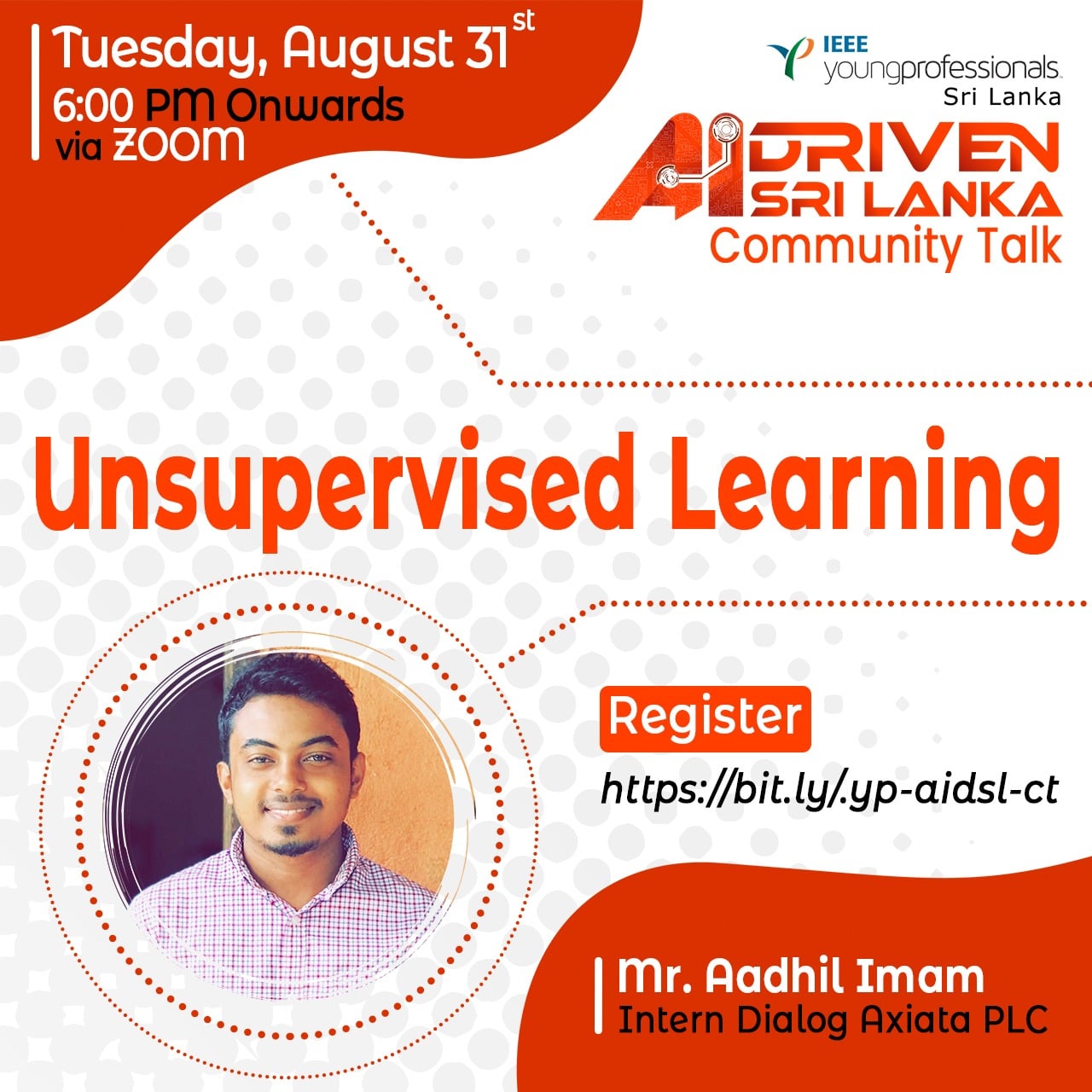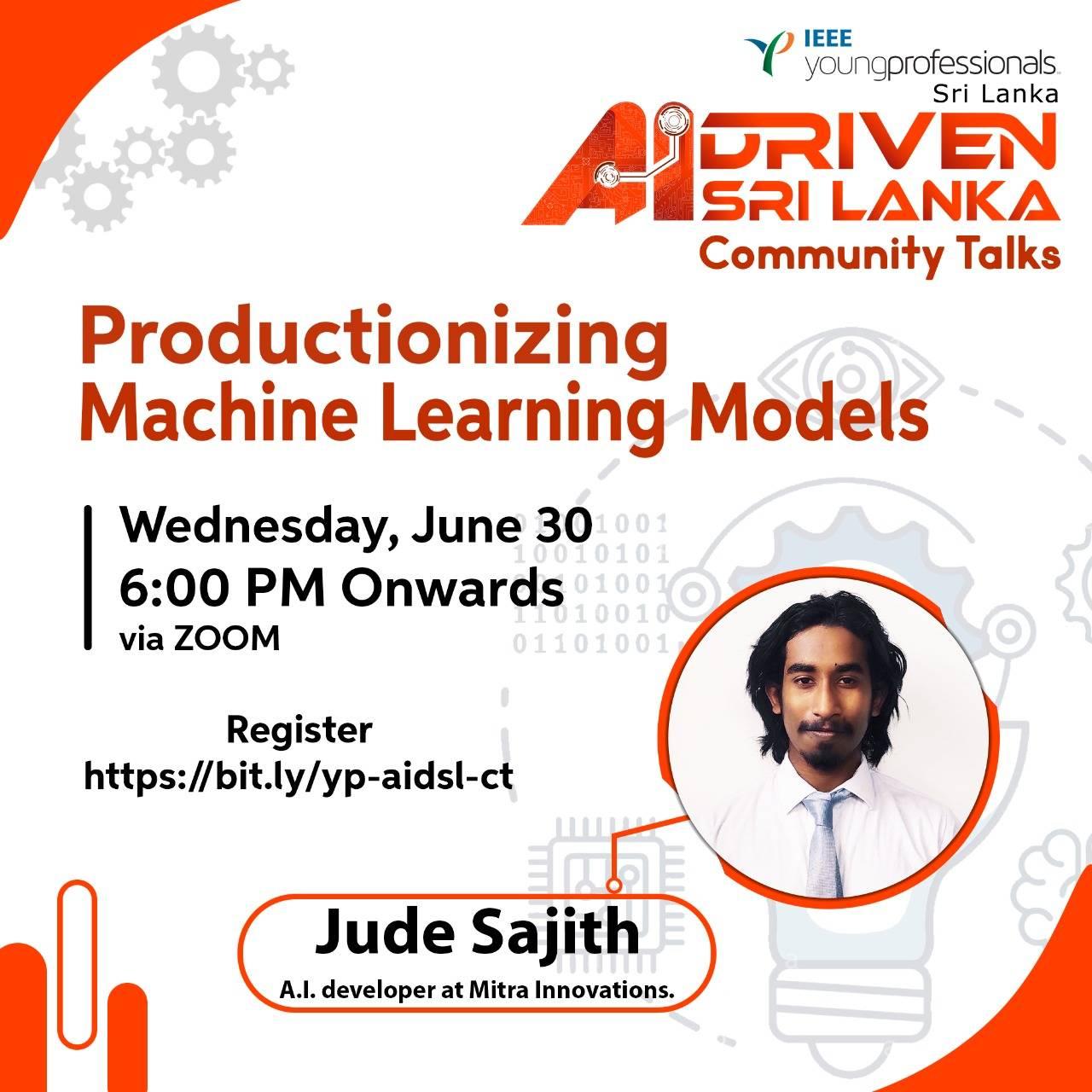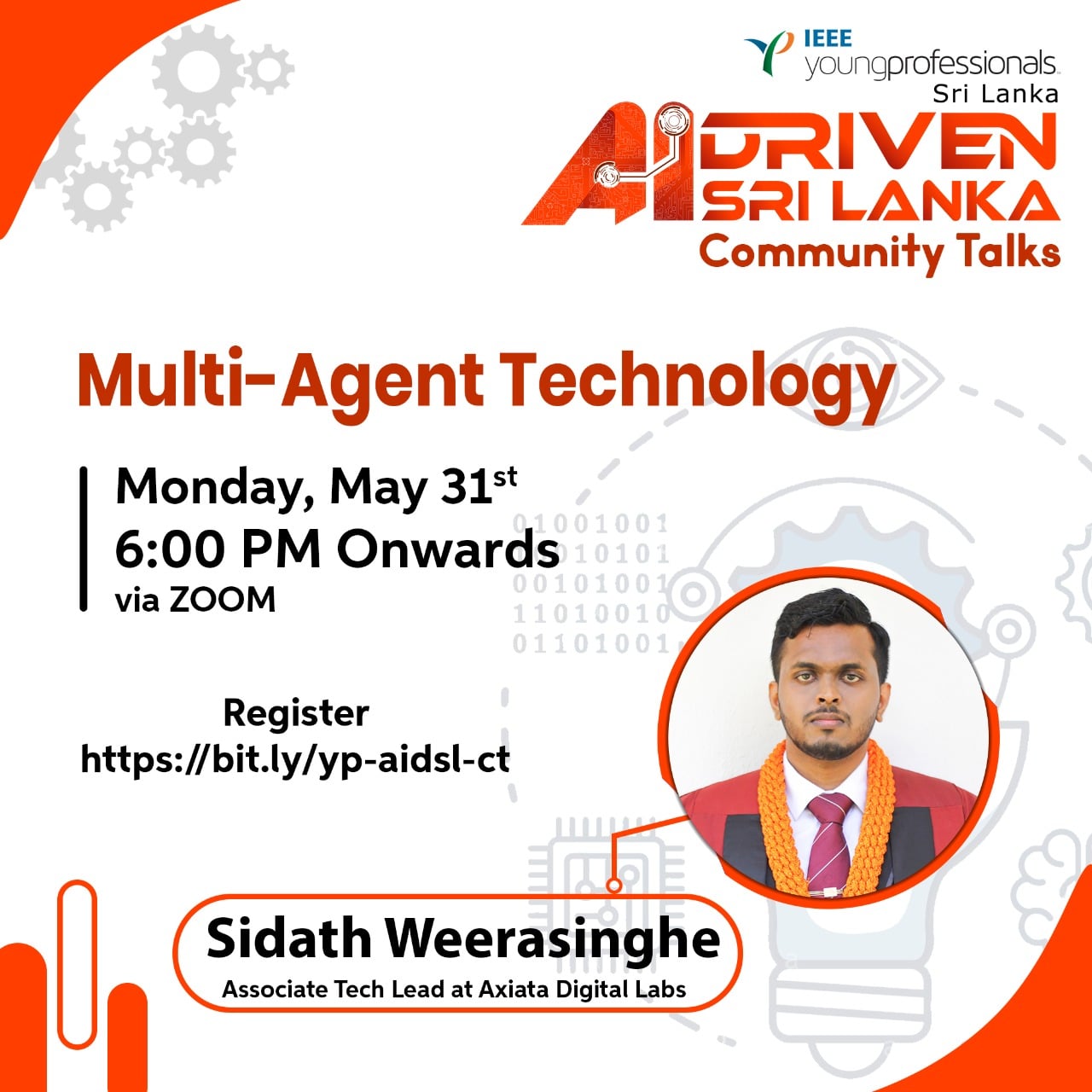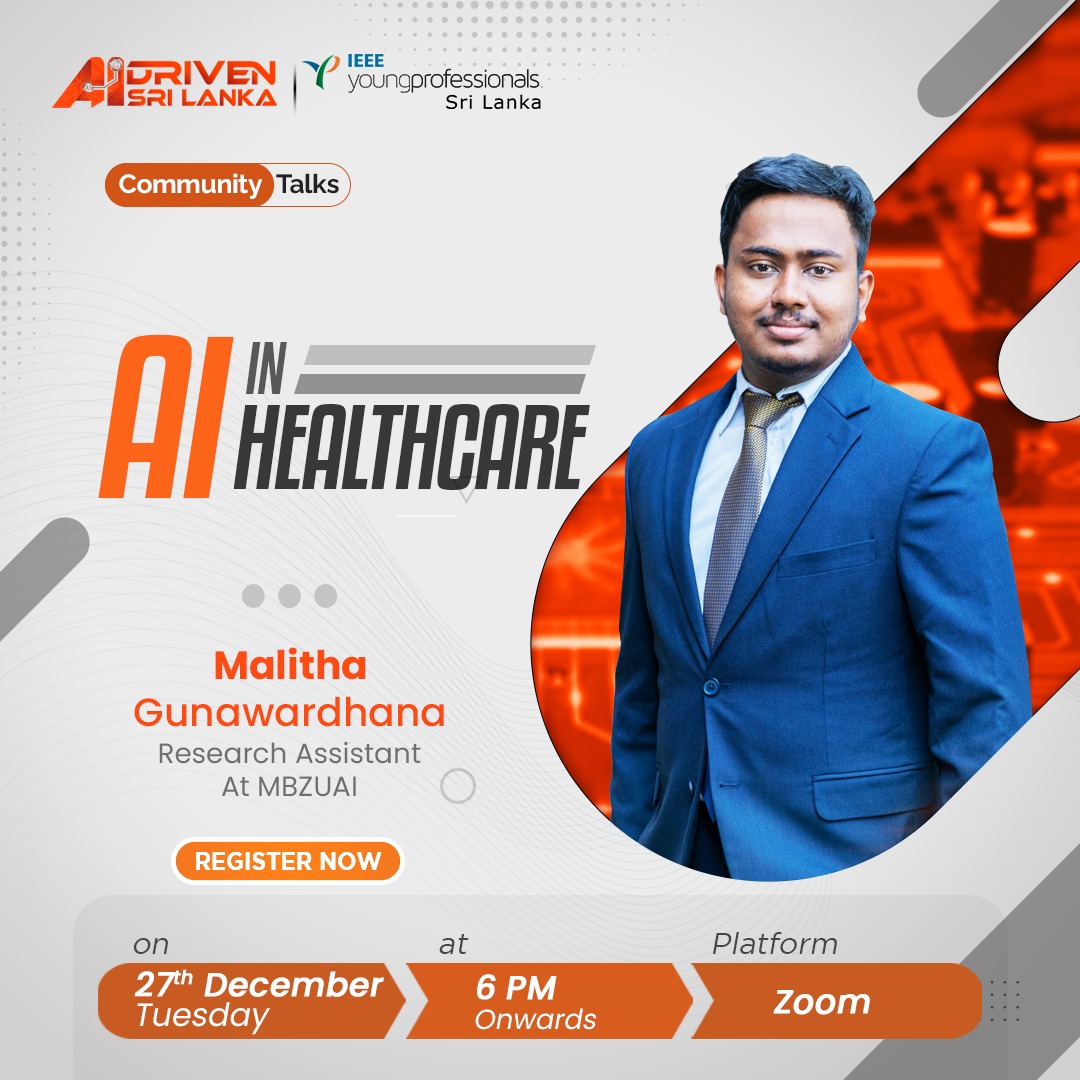Celebrating World AI Day with “Generative AI”: A Journey into the World of Artificial Intelligence
SUMMARY
On 16th July 2023, World AI Day was celebrated with a captivating “Generative AI” event, virtually bringing together over 120 participants eager to explore the world of Artificial Intelligence (AI). Hosted by AI-Driven Sri Lanka, an initiative by IEEE Young Professionals Sri Lanka and led by Mr. Nisal Mihiranga, an esteemed AI and Data Science Architect, the event covered topics such as AI introduction, large language models, prompt engineering, challenges in Generative AI, and future possibilities. With insightful discussions and a vibrant Q&A session, the event provided a valuable platform for knowledge-sharing and fostering responsible AI development for a better future.
ARTICLE
On 16th July 2023, individuals united in celebration of World AI Day through a captivating event named “Generative AI”. This event, held via Zoom from 6 pm onwards, attracted over 120 participants eager to delve into the fascinating world of Artificial Intelligence (AI). The event was hosted by AI-Driven Sri Lanka, an initiative by IEEE Young Professionals Sri Lanka. The event was spearheaded by Mr. Nisal Mihiranga, an esteemed AI and Data Science Architect at Zone24×7.
AI-Driven Sri Lanka ‘World AI Day 2023’ Celebration
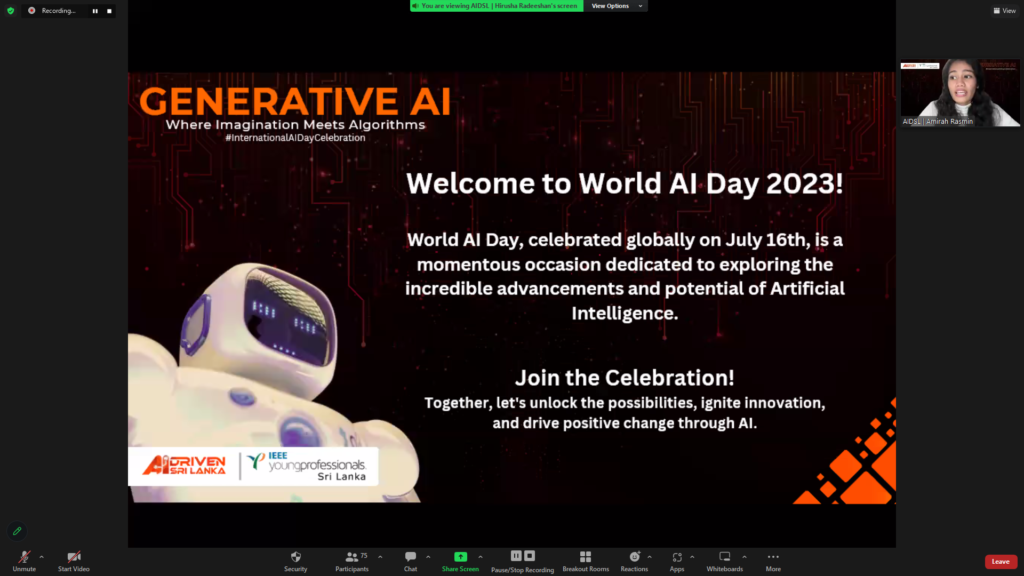
The event commenced with an insightful introduction to AI, the development of computer systems capable of performing tasks that typically require human intelligence. AI systems possess the remarkable ability to perceive, reason, learn, and make decisions. The discussion covered the various types of AI, including Narrow AI, General AI, and Super AI, each with distinct characteristics and examples.
Narrow AI represents the AI systems we currently have, trained to perform specific tasks, such as language translation and disease diagnosis. General AI, although still a distant goal, would possess the ability to perform any intellectual task that a human can. Super AI remains an even more distant concept, referring to AI systems surpassing human capabilities.
Mr. Nisal Mihiranga – Speaker of the Community Talk
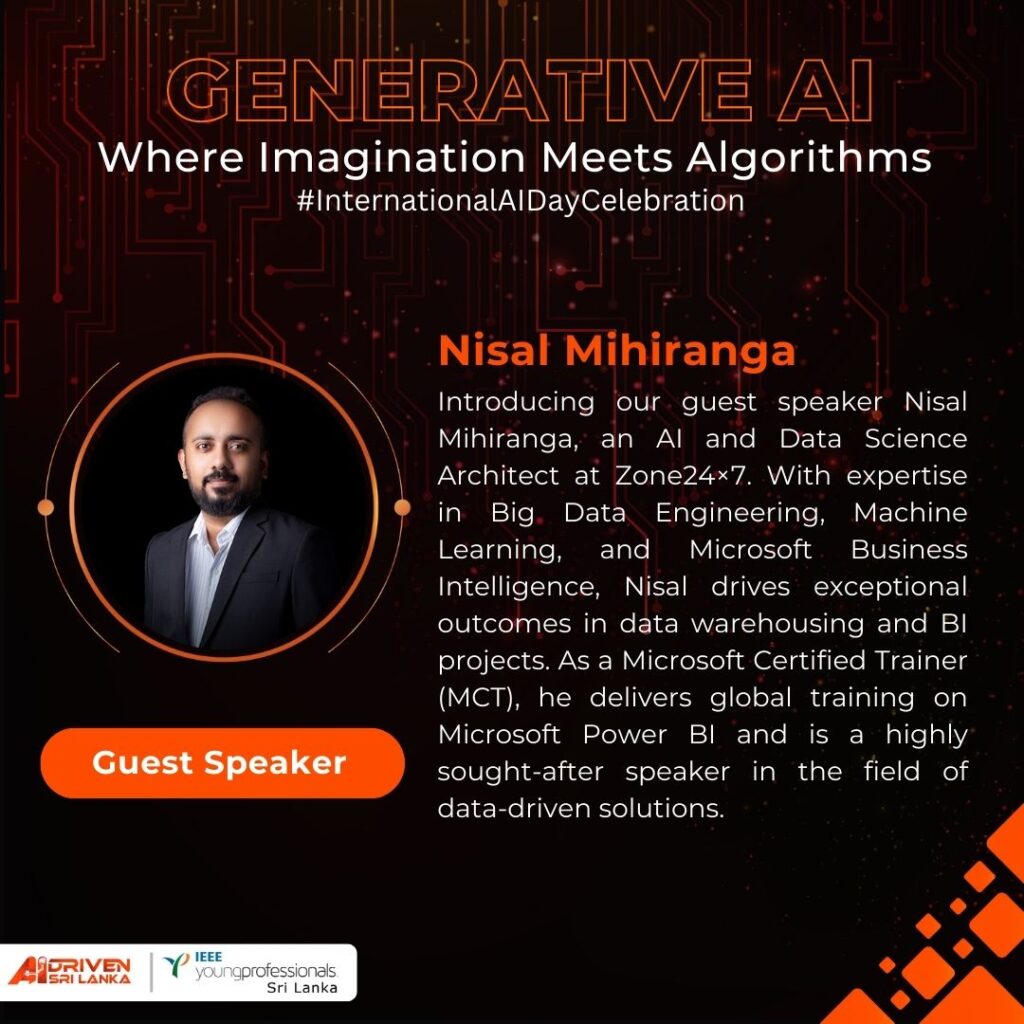
The event then explored the topic of ChatGPT and Large Language Models. ChatGPT, a popular language model, sprinted to one million users, reflecting the growing interest in AI technologies. The timeline of large language models was also presented, showcasing the rapid advancements in this field.
Large language models are built using supervised learning techniques to predict the next word in a sentence repeatedly. They come in two types: Base LLMs, which predict the next word based on training data, and Instruction Tuned LLMs, designed to follow specific instructions. Pre-training data for LLMs is sourced from existing language models, further enhancing their capabilities.
Prompt engineering, a crucial technique in AI, was then introduced to the participants. This method is employed to optimise and fine-tune language models for specific tasks and desired outputs. It allows AI models to be better tailored to real-world applications and requirements.
As with any rapidly evolving technology, Generative AI presents its own set of challenges. The event highlighted some of these challenges and concerns, including:
Bias and Fairness: AI models are trained on existing data created by humans, which can inadvertently carry biases. It’s essential to address these biases to ensure fairness and inclusivity.
Creating Fake Content: Generative AI’s ability to produce highly realistic image and text data raises concerns about identifying and differentiating between real and AI-generated content.
Intellectual Property and Attribution: With AI-generated content blurring the lines between human and machine creations, there are questions about ownership and proper attribution for generated works.
Lack of Transparency and Explainability: Modern AI models can be complex, making it challenging to understand the decision-making processes behind the content they generate. Ensuring transparency and explainability is critical for building trust in AI technologies.
Despite the challenges, the future possibilities of Generative AI are incredibly promising. Some of the potential developments include:
Cross-Domain Applications: AI’s ability to generate content can be harnessed across various domains, including art, music, and literature, enriching human creativity.
Personalised User Experience: Generative AI can offer personalised and tailored experiences to users, enhancing interactions with digital platforms and services.
Responsible AI and Ethical Considerations: As AI continues to progress, it’s crucial to prioritise ethical considerations, ensuring that AI is developed and deployed responsibly, with due regard for its impact on society.
Collaborative and Interactive Work: Generative AI can open new avenues for collaboration between humans and machines, where AI aids and enhances human creativity and problem-solving capabilities.
The event concluded with an engaging Q&A session where participants had the opportunity to ask questions, and Mr. Nisal Mihiranga, the keynote speaker, provided insightful answers, further enriching the attendees’ understanding of Generative AI and its potential impact on the future.
The “Generative AI” event on World AI Day served as an excellent platform for participants to explore the intricacies of AI and its evolving applications. As technology continues to advance, events like these play a crucial role in fostering knowledge-sharing and encouraging responsible AI development for a better and brighter future.
Communty Talk – ‘Generative AI’
